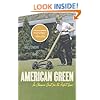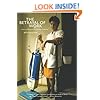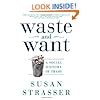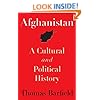
|
Garbology: Our Dirty Love Affair with Trash
and over one million other books are available for Amazon Kindle. Learn more


Flip to back
Flip to front

Garbology: Our Dirty Love Affair with Trash Paperback – March 5, 2013

$12.20
FREE Shipping on orders over $35.
In Stock.
Ships from and sold by Amazon.com.
Gift-wrap available.
NO_CONTENT_IN_FEATURE
Start reading Garbology: Our Dirty Love Affair with Trash on your Kindle in under a minute.
Don't have a Kindle? Get your Kindle here, or download a FREE Kindle Reading App.
Don't have a Kindle? Get your Kindle here, or download a FREE Kindle Reading App.
Best Books of the Month
Want to know our Editors' picks for the best books of the month? Browse Best Books of the Month, featuring our favorite new books in more than a dozen categories.
Want to know our Editors' picks for the best books of the month? Browse Best Books of the Month, featuring our favorite new books in more than a dozen categories.
Product Details
Would you like to update product info or give feedback on images?.
|
Editorial Reviews
From Bookforum
Humes, in short, presents us with a compelling problem—and most of his arguments for the rank inefficiency of our trash-happy, terminally obsolescent economy are spot on. But he doesn't offer a compelling solution on the same scale. —Coral Davenport
--This text refers to an out of print or unavailable edition of this title.
Review
“Humes offers plenty of surprising, even shocking, statistics…An important addition to the environmentalist bookshelf.”
—Kirkus Reviews
—Kirkus Reviews
“Unlike most dirty books, this one is novel and fresh on every page. You'll be amazed.”
—Bill McKibben, author of Eaarth
—Bill McKibben, author of Eaarth
“Edward Humes takes us on a real romp through the waste stream. Garbology is an illuminating, entertaining read that ultimately provides hope and tips for a less wasteful future. This book will make you want to burn, or at least recycle, your trash can!”
—Jonathan Bloom, author of American Wasteland
—Jonathan Bloom, author of American Wasteland
“In this well-written and fast-paced book, Ed Humes delves into the underbelly of a consumer society—its trash. What he finds is so startling and infuriating, you will never think about ‘waste’ in the same way again.”
–Samuel Fromartz, author of Organic, Inc. and Editor-in-Chief of the Food & Environment Reporting Network"Humes's argument isn't a castigation of litterbugs. It's a persuasive and sometimes astonishing indictment of an economy that's become inextricably linked to the increasing consumption of cheap, disposable stuff—ultimately to our own economic, political, and yes, environmental peril... his arguments for the rank inefficiency of our trash-happy, terminally obsolescent economy are spot on."
—Bookforum
--This text refers to an out of print or unavailable edition of this title.
—Bookforum
More About the Author
QUICK STORY: A Pulitzer Prize-winning journalist and author, Edward Humes' latest books are A MAN AND HIS MOUNTAIN (Public Affairs, October 2013), the biography of winemaking legend Jess Jackson, and GARBOLOGY: Our Dirty Love Affair With Trash (Avery/Penguin, April 2012). His other books include the PEN Award-winning NO MATTER HOW LOUD I SHOUT: A Year In the Life of Juvenile Court, the bestseller MISSISSIPPI MUD, FORCE OF NATURE: The Unlikely Story of Wal-Mart's Green Revolution, and MONKEY GIRL: Evolution, Education, Religion and the Battle for America's Soul.
BACK STORY: When I was six I decided I wanted to be a writer, and I've been at it ever since. I started my writing career in newspapers, and I think I probably would have paid them, instead of the other way around, for the thrill of seeing my first byline in print. As a newspaper reporter, I gravitated toward stories that allowed me to dig behind the scenes and beneath the surface, looking for questions others hadn't asked or imagined. For me, the job amounted to this: license to find out the things I had always wanted to know, about anything and everything that interested, touched or outraged me. Then, within the space and time limitations of a daily newspaper, I had the chance to mold it all into a story to pass onto others. I loved that work.
When I left newspapers to write nonfiction books, I suddenly had weeks or months, rather than hours or days, to immerse myself in the inner workings of the places, characters and events I seek to understand and write about. I had found the greatest job I can imagine.
In my books, I try to take readers inside worlds most don't get to visit or see close up on their own. My first stories were about crime -- real-life murder mysteries-- and I still enjoy reading and writing true crime. But I've pursued broader and more varied narratives in my more recent books. I've written about the nation's crumbling juvenile justice system, the California high school that went from worst to best in the state, the harrowing but surprisingly humane world of a neonatal intensive care unit, the front lines of a modern-day Scopes Monkey Trial, a Gulf Coast murder mystery solved by the victims' own daughter.
Lately - in ECO BARONS, FORCE OF NATURE and GARBOLOGY - I've focused on narratives about the environment and sustainability. I believe this to be the most important story of our age - for ourselves, and for our children.
But after immersing myself in trash for GARBOLOGY, I dove into the very different world of wine and undertook my very first biography. I feel privileged to tell the classic American success story behind the founder of Kendall-Jackson Wines, Jess Jackson, in A MAN AND HIS MOUNTAIN.
OTHER WRITING: I've written for numerous publications, including Los Angeles Magazine, Sierra Magazine, Readers Digest, California Lawyer, the Oxford American, the Los Angeles Times, and The New York Times. I have taught writing and journalism at the University of California, Irvine, Chapman University, and the University of Oregon.
SPEAKING: I enjoy speaking about my work, and have been invited to address a wide range of groups and organizations:the National Education Summit, the National Steinbeck Center, the ALOUD series, the National Association of District Attorneys, the National Association of Criminal Defense Attorneys, the National Association of Juvenile and Family Court Judges, the Dole Center for Politics, the National High School Journalism Conference, the National College Newspaper Convention, the National Association of Teachers of English, the California Department of Corrections, the California Appellate Project, the American Psychology and Law Society, the Investigative Reporters and Editors, the Poynter Institute, the Crichton Club and numerous universities and other schools. I was called to testify about my reporting on juvenile court before the U.S. Senate and a joint session of the California Senate and Assembly. I've had the pleasure of delivering a commencement address at Hampshire College in Amherst, my alma mater, and have enjoyed speaking at venues throughout California as a contributing writer to MY CALIFORNIA, an anthology from which all proceeds were donated to the California Arts Council to support arts and writing programs for the state's school children. I served as a Regents Lecturer at the University of California, Irvine, and taught writing workshops at the University of Oregon graduate program in literary nonfiction.
HONORS: I received a Pulitzer Prize for my newspaper coverage of the military, a PEN Center USA award for NO MATTER HOW LOUD I SHOUT, a Casey Medal for Meritorious Journalism for "The Forgotten," my LA Magazine account of life inside Los Angeles's nightmarish home for neglected children, and a Silver Gavel honor for MONKEY GIRL. The Washington Post named SCHOOL OF DREAMS a best book of 2003; the Los Angeles Times named MEAN JUSTICE a best book of 1999.
BORN: Philadelphia.
EDUCATION: Hampshire College, Amherst, Mass.
CURRENT WHEREABOUTS: Southern California
BACK STORY: When I was six I decided I wanted to be a writer, and I've been at it ever since. I started my writing career in newspapers, and I think I probably would have paid them, instead of the other way around, for the thrill of seeing my first byline in print. As a newspaper reporter, I gravitated toward stories that allowed me to dig behind the scenes and beneath the surface, looking for questions others hadn't asked or imagined. For me, the job amounted to this: license to find out the things I had always wanted to know, about anything and everything that interested, touched or outraged me. Then, within the space and time limitations of a daily newspaper, I had the chance to mold it all into a story to pass onto others. I loved that work.
When I left newspapers to write nonfiction books, I suddenly had weeks or months, rather than hours or days, to immerse myself in the inner workings of the places, characters and events I seek to understand and write about. I had found the greatest job I can imagine.
In my books, I try to take readers inside worlds most don't get to visit or see close up on their own. My first stories were about crime -- real-life murder mysteries-- and I still enjoy reading and writing true crime. But I've pursued broader and more varied narratives in my more recent books. I've written about the nation's crumbling juvenile justice system, the California high school that went from worst to best in the state, the harrowing but surprisingly humane world of a neonatal intensive care unit, the front lines of a modern-day Scopes Monkey Trial, a Gulf Coast murder mystery solved by the victims' own daughter.
Lately - in ECO BARONS, FORCE OF NATURE and GARBOLOGY - I've focused on narratives about the environment and sustainability. I believe this to be the most important story of our age - for ourselves, and for our children.
But after immersing myself in trash for GARBOLOGY, I dove into the very different world of wine and undertook my very first biography. I feel privileged to tell the classic American success story behind the founder of Kendall-Jackson Wines, Jess Jackson, in A MAN AND HIS MOUNTAIN.
OTHER WRITING: I've written for numerous publications, including Los Angeles Magazine, Sierra Magazine, Readers Digest, California Lawyer, the Oxford American, the Los Angeles Times, and The New York Times. I have taught writing and journalism at the University of California, Irvine, Chapman University, and the University of Oregon.
SPEAKING: I enjoy speaking about my work, and have been invited to address a wide range of groups and organizations:the National Education Summit, the National Steinbeck Center, the ALOUD series, the National Association of District Attorneys, the National Association of Criminal Defense Attorneys, the National Association of Juvenile and Family Court Judges, the Dole Center for Politics, the National High School Journalism Conference, the National College Newspaper Convention, the National Association of Teachers of English, the California Department of Corrections, the California Appellate Project, the American Psychology and Law Society, the Investigative Reporters and Editors, the Poynter Institute, the Crichton Club and numerous universities and other schools. I was called to testify about my reporting on juvenile court before the U.S. Senate and a joint session of the California Senate and Assembly. I've had the pleasure of delivering a commencement address at Hampshire College in Amherst, my alma mater, and have enjoyed speaking at venues throughout California as a contributing writer to MY CALIFORNIA, an anthology from which all proceeds were donated to the California Arts Council to support arts and writing programs for the state's school children. I served as a Regents Lecturer at the University of California, Irvine, and taught writing workshops at the University of Oregon graduate program in literary nonfiction.
HONORS: I received a Pulitzer Prize for my newspaper coverage of the military, a PEN Center USA award for NO MATTER HOW LOUD I SHOUT, a Casey Medal for Meritorious Journalism for "The Forgotten," my LA Magazine account of life inside Los Angeles's nightmarish home for neglected children, and a Silver Gavel honor for MONKEY GIRL. The Washington Post named SCHOOL OF DREAMS a best book of 2003; the Los Angeles Times named MEAN JUSTICE a best book of 1999.
BORN: Philadelphia.
EDUCATION: Hampshire College, Amherst, Mass.
CURRENT WHEREABOUTS: Southern California
Customer Reviews
Most Helpful Customer Reviews
21 of 22 people found the following review helpful
By
C. Ash
on April 29, 2012
Format: Kindle Edition
Verified Purchase
1 Comment
Sending feedback...
I encountered this book by chance when part of the NPR interview of Edward Humes, author of Garbology: Our Dirty Love Affair with Trash caught my attention.
In the interview, Humes was talking about Bakelite, an early plastic that was used for billiard balls, piano keys, and telephones -- things that were meant to be durable, and have long, even heirloom-length, lives. He was calm and reasoned, not casting blame but describing a shift in the way materials are used as being problematic. It was impersonal, informative, and assumed intelligence from the audience.
Humes opens the book with an anecdote of elderly hoarders, Jesse & Thelma Gaston, who had been trapped in their own home, by their own trash, for three weeks. He moves further into the story of trash by describing other hoarders, the condition of hoarding, and the media attention it has received in the last few years. His punchline is startling:
"But little if any thought is given to the refuse itself, or to the rather scarier question of how any person, hoarder or not, can possibly generate so much trash so quickly.
Of course, there's a reason for this blind spot: namely, the amount of junk, trash, and waste that hoarders generate is perfectly, horrifyingly normal. It's just that most of us hoard it in landfills instead of living rooms, so we never see the truly epic quantities of stuff that we all discard. But make no mistake: The two or three years it took the Gastons to fill their house with five to six tons of trash is typical for an American couple." (page 3/location 106)
He follows this assertion with a discussion of how much trash the average American generates daily, coming up with an average lifetime production of 102 tons of trash.Read more ›
In the interview, Humes was talking about Bakelite, an early plastic that was used for billiard balls, piano keys, and telephones -- things that were meant to be durable, and have long, even heirloom-length, lives. He was calm and reasoned, not casting blame but describing a shift in the way materials are used as being problematic. It was impersonal, informative, and assumed intelligence from the audience.
Humes opens the book with an anecdote of elderly hoarders, Jesse & Thelma Gaston, who had been trapped in their own home, by their own trash, for three weeks. He moves further into the story of trash by describing other hoarders, the condition of hoarding, and the media attention it has received in the last few years. His punchline is startling:
"But little if any thought is given to the refuse itself, or to the rather scarier question of how any person, hoarder or not, can possibly generate so much trash so quickly.
Of course, there's a reason for this blind spot: namely, the amount of junk, trash, and waste that hoarders generate is perfectly, horrifyingly normal. It's just that most of us hoard it in landfills instead of living rooms, so we never see the truly epic quantities of stuff that we all discard. But make no mistake: The two or three years it took the Gastons to fill their house with five to six tons of trash is typical for an American couple." (page 3/location 106)
He follows this assertion with a discussion of how much trash the average American generates daily, coming up with an average lifetime production of 102 tons of trash.Read more ›
Thank you for your feedback.
If this review is inappropriate, please let us know.
Sorry, we failed to record your vote. Please try again
12 of 12 people found the following review helpful
By
Serge J. Van Steenkiste
on May 9, 2012
Format: Hardcover
Verified Purchase
2 Comments
Sending feedback...
Edward Humes introduces his readers to what is called garbology or the study of trash. Mr. Humes sets himself the objective to answer three questions in his study of trash:
1. What is the nature and cost of the 7.1 pounds of trash that each American generates on average every day during his/her lifetime (102-tons of trash legacy)?
2. How is it possible to generate so much trash with often too little thought spent on this generation rate?
3. What can be done to reduce this mountain of waste that each American generates during his/her life (pp. 4; 12; 92; 140; 155)?
1. Mr. Humes shares with his audience some interesting stats about the biggest "fillers" of America's landfills. Furniture & furnishings, clothing & footwear, and wood packaging represent the biggest contributors of total landfilled trash by weight (p. 34). Readers also learn that paper, food scraps, yard waste, and plastics each represent more than 10% of materials that Americans throw away, by weight, before recycling and composting. In addition, Mr. Humes discloses that containers & packaging, nondurable goods, durable goods, and food scraps represent together over 90% of the product categories that Americans bury in their landfills, by weight, after recycling and composting (p. 35).
Similarly, Mr. Humes does a great job in bringing to light the cost of that trash to the U.S. economy. The Waste-to-Energy Research and Technology Council estimates that the current system of burying waste in landfills amounts to burying a billion barrels of oil a year that could be used for much needed energy (p. 232). Waste Management, Inc., on its side, is working on new processes that could one day make it possible to derive over $200 worth of synthetic gasoline from a ton of trash.Read more ›
1. What is the nature and cost of the 7.1 pounds of trash that each American generates on average every day during his/her lifetime (102-tons of trash legacy)?
2. How is it possible to generate so much trash with often too little thought spent on this generation rate?
3. What can be done to reduce this mountain of waste that each American generates during his/her life (pp. 4; 12; 92; 140; 155)?
1. Mr. Humes shares with his audience some interesting stats about the biggest "fillers" of America's landfills. Furniture & furnishings, clothing & footwear, and wood packaging represent the biggest contributors of total landfilled trash by weight (p. 34). Readers also learn that paper, food scraps, yard waste, and plastics each represent more than 10% of materials that Americans throw away, by weight, before recycling and composting. In addition, Mr. Humes discloses that containers & packaging, nondurable goods, durable goods, and food scraps represent together over 90% of the product categories that Americans bury in their landfills, by weight, after recycling and composting (p. 35).
Similarly, Mr. Humes does a great job in bringing to light the cost of that trash to the U.S. economy. The Waste-to-Energy Research and Technology Council estimates that the current system of burying waste in landfills amounts to burying a billion barrels of oil a year that could be used for much needed energy (p. 232). Waste Management, Inc., on its side, is working on new processes that could one day make it possible to derive over $200 worth of synthetic gasoline from a ton of trash.Read more ›
Thank you for your feedback.
If this review is inappropriate, please let us know.
Sorry, we failed to record your vote. Please try again
14 of 16 people found the following review helpful
By
Deborah R. Munk
on April 24, 2012
Format: Hardcover
Verified Purchase
1 Comment
Sending feedback...
For those of you who think garbage is boring, think again. Edward Humes' book Garbology is an interesting and fun (really!) read. Humes describes some of the environmental problems we face like the horrific amount of plastic floating in our oceans. He includes a fascinating chapter on New York's garbage at the turn of the century when the streets were still filled with rotting food left for pigs to eat and how the city overcame the stench. He offers attention-grabbing stats like the new one out of Columbia University and BioCycle--the average American throws away 7.1 (not 4.5) pounds a day! The last part of the book is my favorite where Humes focuses on people and places that are making a difference--the folks at Chico Bags, the San Francisco artists who create art out of throwaways, the most eco city in the nation--Portland, OR, and a family whose yearly discards fill up one mason jar! I don't think I can reduce my discards to a mason jar, but after reading Garbology, I might want to try.
Thank you for your feedback.
If this review is inappropriate, please let us know.
Sorry, we failed to record your vote. Please try again
2 of 2 people found the following review helpful
By
Kristopher Waldhauser
on March 16, 2013
Format: Kindle Edition
Comment
Sending feedback...
I liked this book a lot and it will have an impact on how I think about waste and lifestyle changes that makes sense for my family and me, as well as the environment and our society.
There are a lot of great facts and idea provoking stories. Still, at times it gets preachy and excessively judges the activities of others and people in the past, without a clear, fiscally realistic view of how to do things better. A little too idealistic at times, with the assumption that government is the answer to everything and that a bigger government will solve many of these problems. There is definitely a waste and consumer problem to be solved, but I am not so sure government can effective solve it. Still, something needs to be done.
A good read to become more informed and learn how to change things for the better.
There are a lot of great facts and idea provoking stories. Still, at times it gets preachy and excessively judges the activities of others and people in the past, without a clear, fiscally realistic view of how to do things better. A little too idealistic at times, with the assumption that government is the answer to everything and that a bigger government will solve many of these problems. There is definitely a waste and consumer problem to be solved, but I am not so sure government can effective solve it. Still, something needs to be done.
A good read to become more informed and learn how to change things for the better.
Thank you for your feedback.
If this review is inappropriate, please let us know.
Sorry, we failed to record your vote. Please try again











